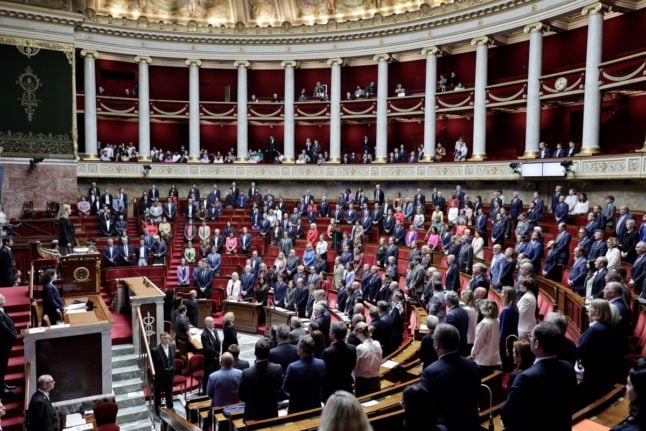“We can rejoice in ideological progress, an ideological victory even for the National Rally, since this is now enshrined into law as a national priority,” said the three-time presidential candidate.
The RN had previously said it would vote against the bill or abstain.
Le Pen, who now leads the RN’s lawmakers in parliament but is widely expected to stand again for president in 2027, described the legislation as a “toughening of immigration conditions”.
Her announcement came after a commission of upper house senators and lower house National Assembly MPs agreed a new draft of the bill, which had been voted down without being debated in the National Assembly last week in a major blow to Macron.
“An agreement has been reached by parliament on the immigration text,” Interior Minister Gerald Darmanin wrote on X, formerly Twitter.
The legislation is now expected to be approved in successive votes Tuesday evening in the Senate and then the National Assembly.
As well as the RN and Macron’s centrist MPs led by his Renaissance party, the bill will also be supported by the right-wing Republicans.
The left has reacted with horror to the prospect of the legislation being passed, with the head of Socialist lawmakers in the National Assembly Boris Vallaud describing it as a “great moment of dishonour for the government”.



 Please whitelist us to continue reading.
Please whitelist us to continue reading.
Member comments